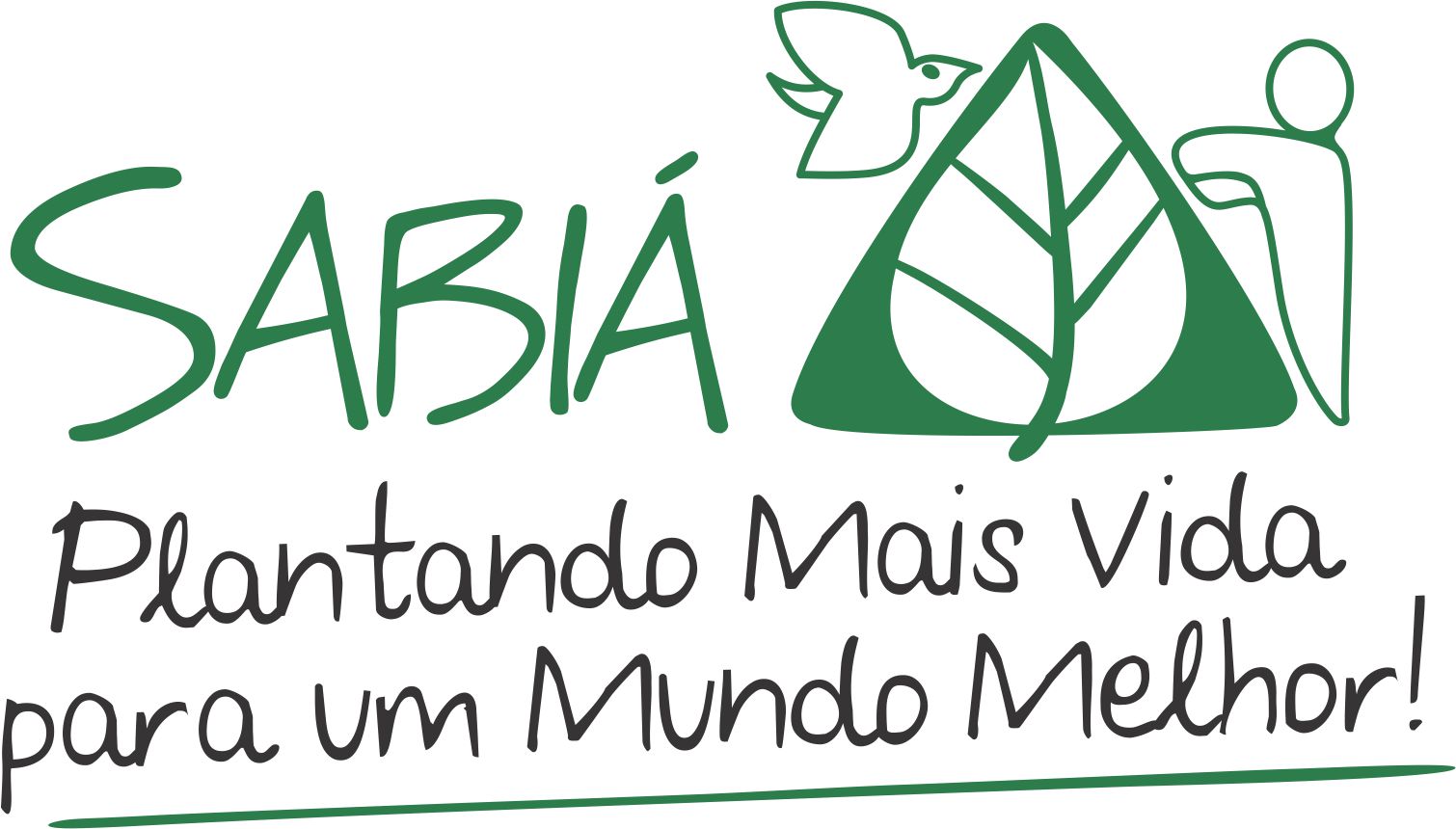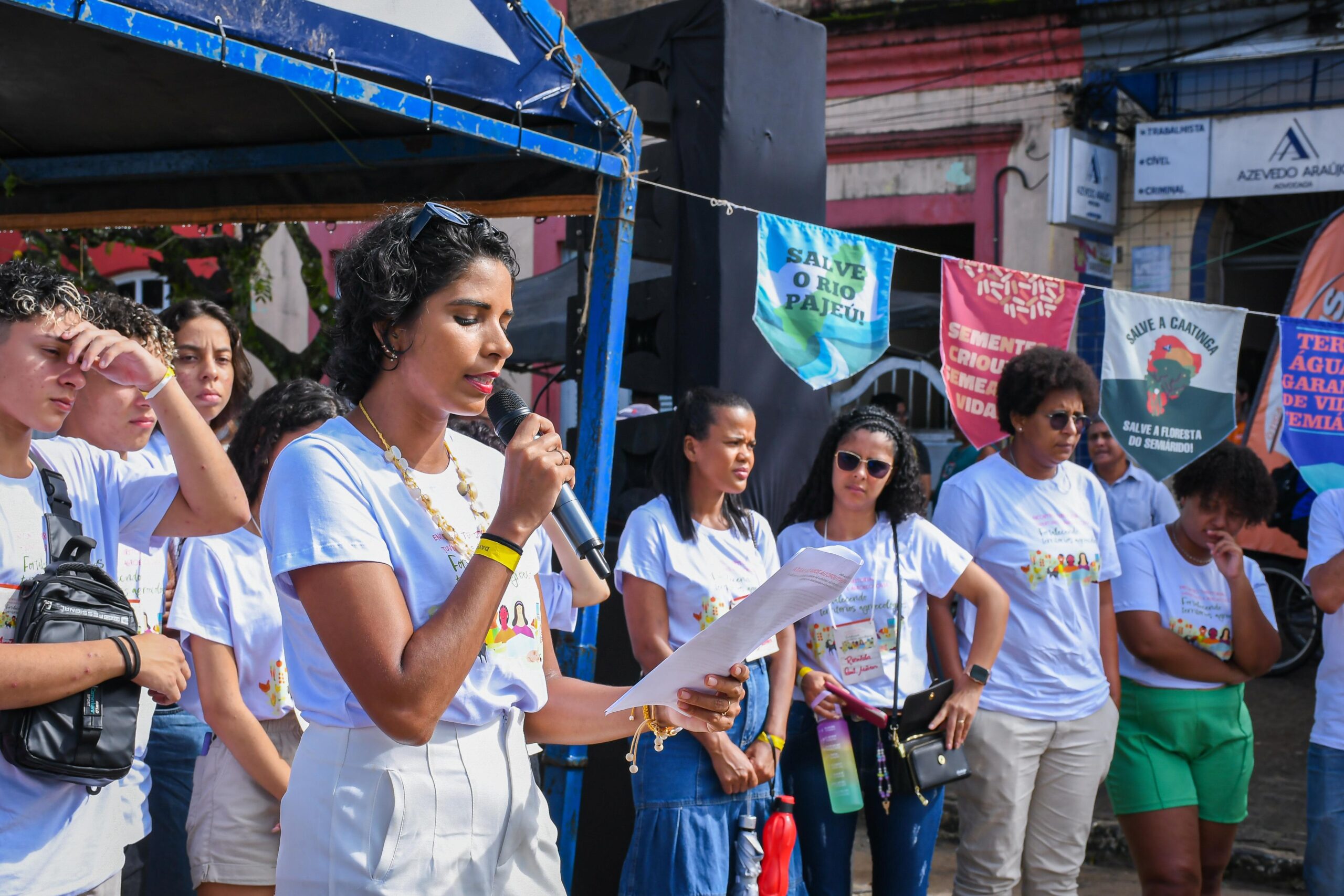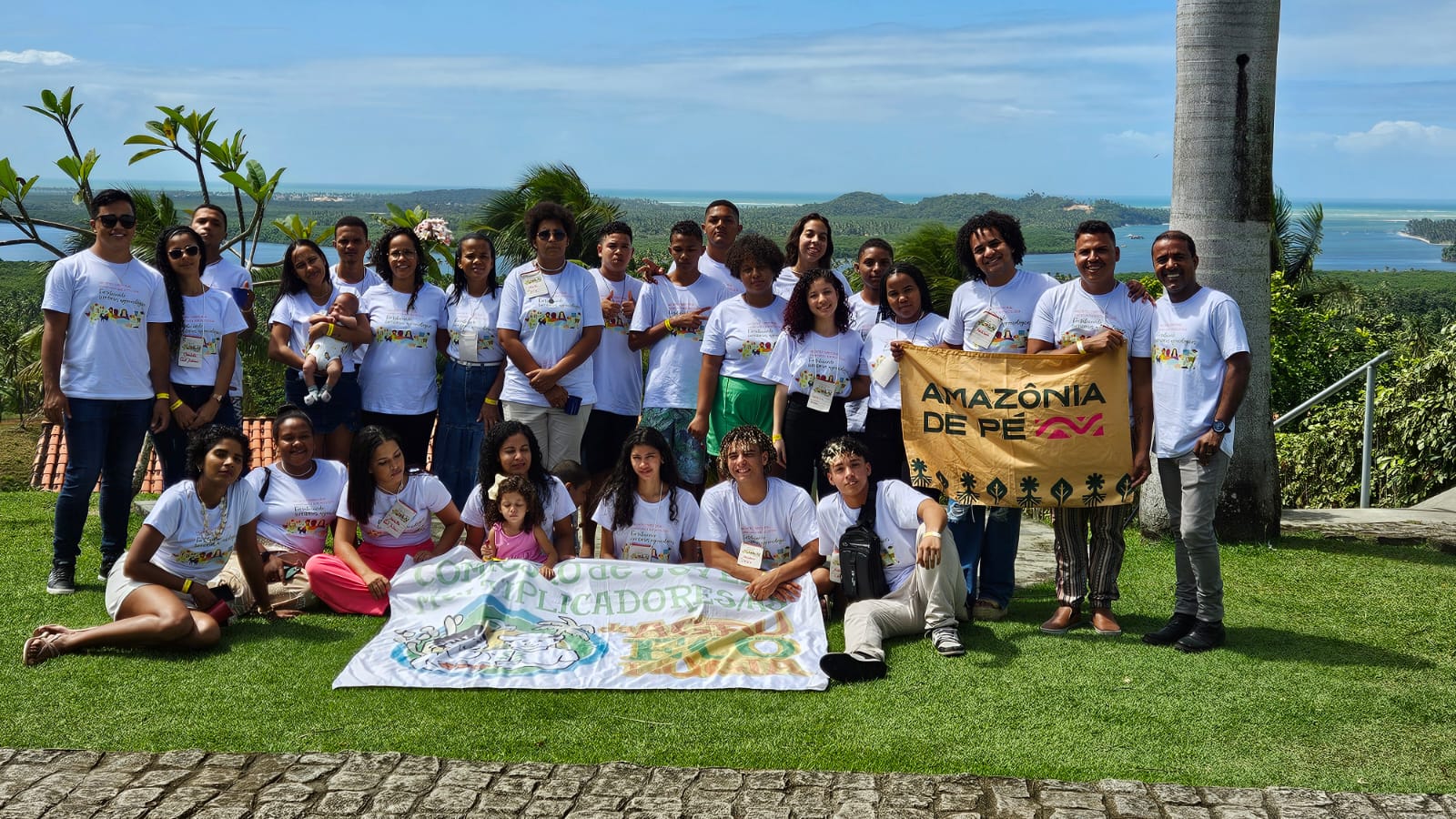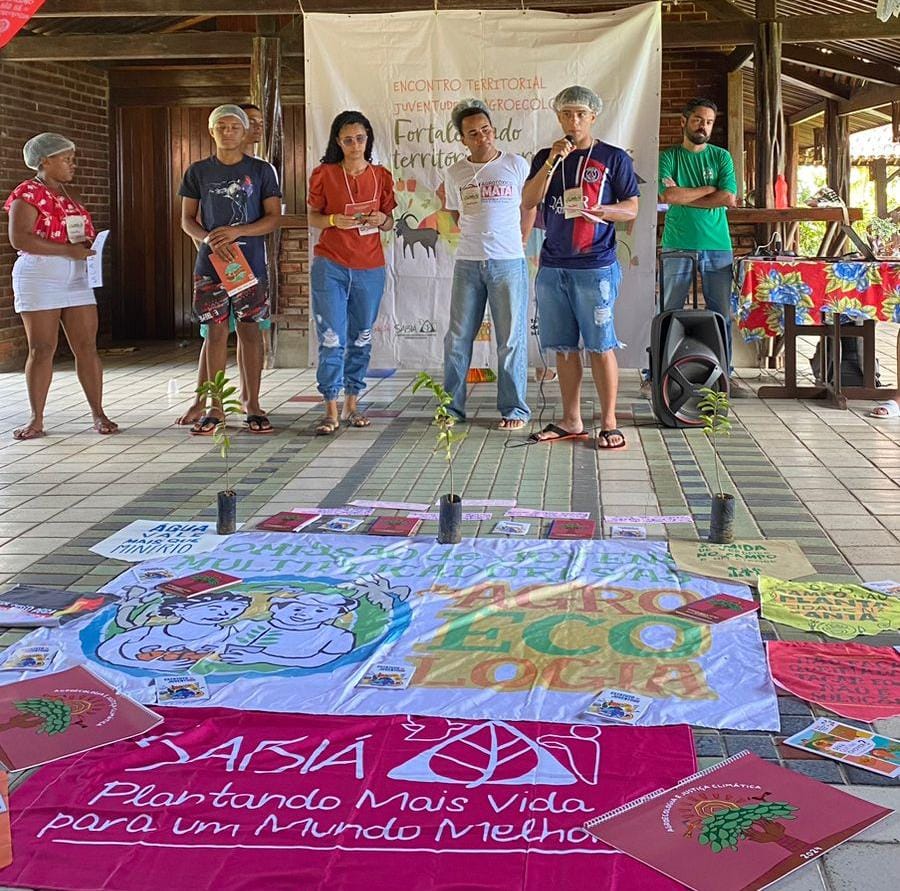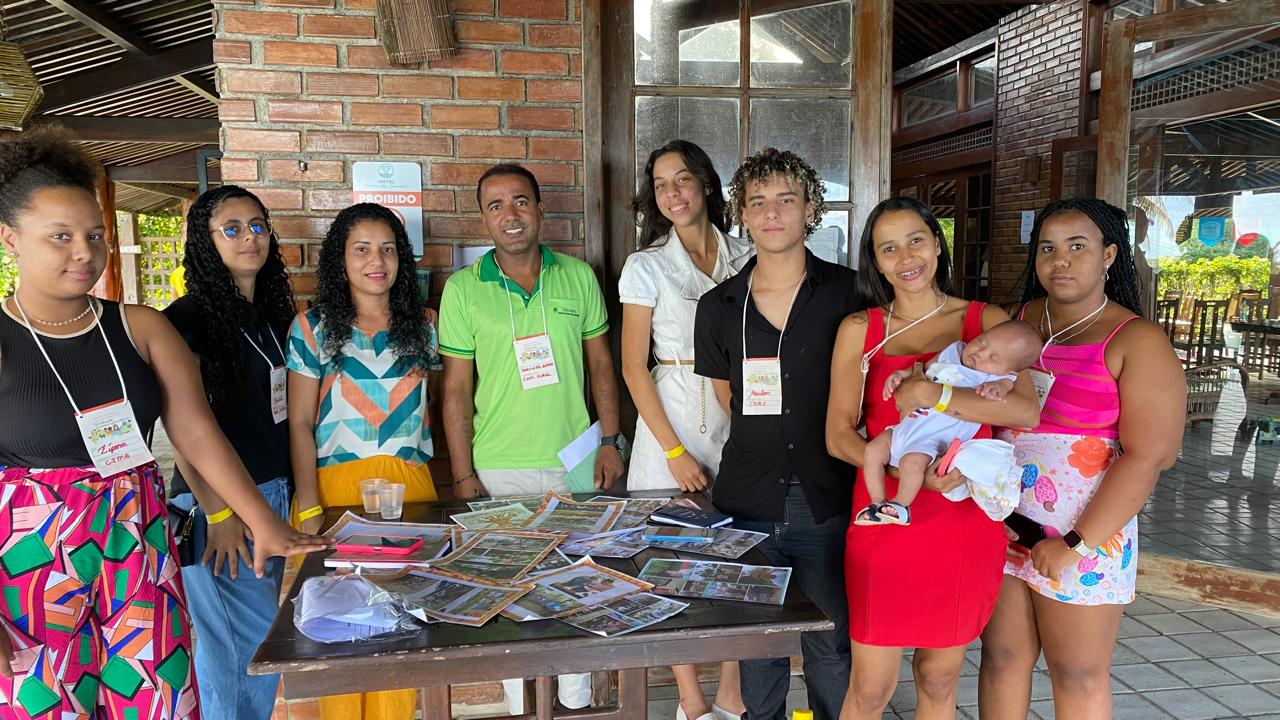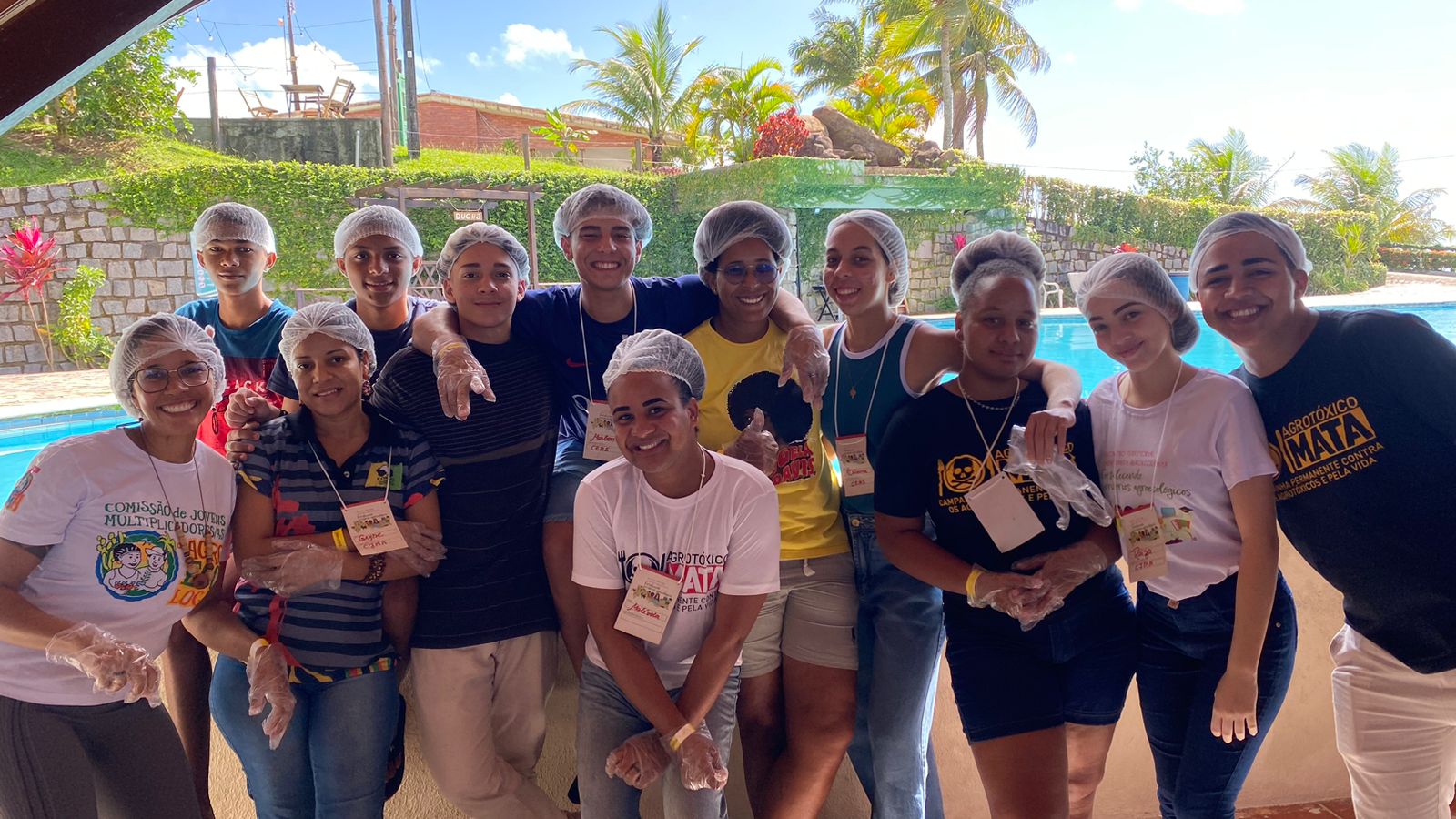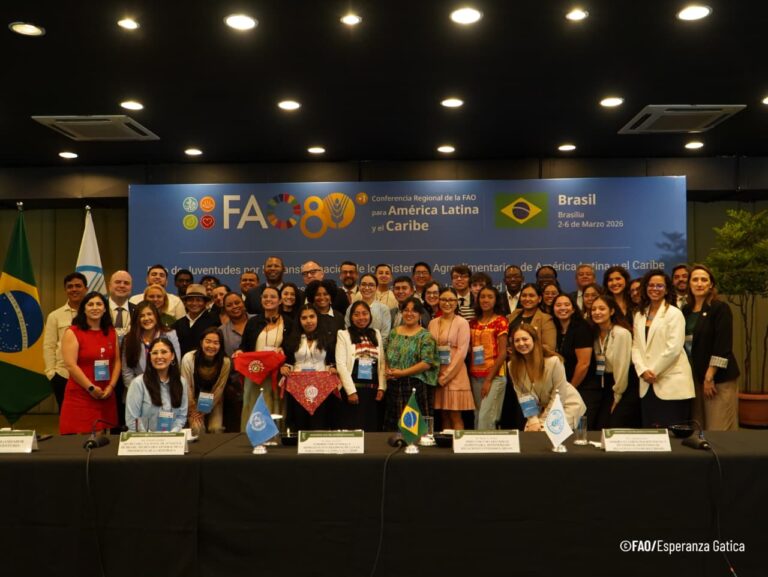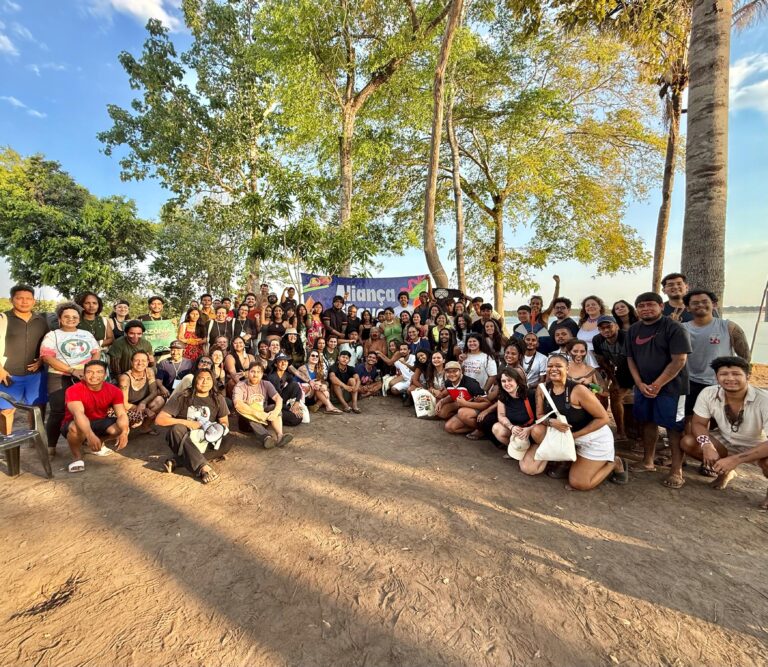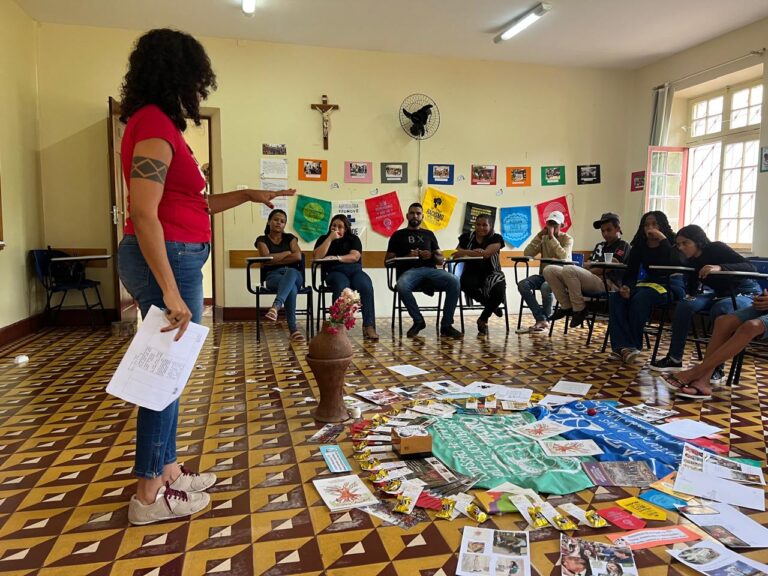Territorial Meeting on Youth and Agroecology: Strengthening Agroecological Territories
By Vitor Diego, young agroecology multiplier and educator
From July 15 to 17, the Praia dos Carneiros Hotel in Rio Formoso, in Pernambuco’s Zona da Mata Sul, was the vibrant stage for the Territorial Meeting of Youth and Agroecology: Strengthening Agroecological Territories. This event brought together young people from different regions, determined to discuss and promote agroecology and sustainability, consolidating a fairer and greener future for all.
The meeting was marked by intense demands and discussions on key issues such as sustainability, solidarity economy, education, public policies, climate change and rural culture. The young people debated strategies to promote a healthy environment that guarantees a good quality of life for all. The passion and commitment of the participants was palpable, reflecting a genuine desire for change.
For Ferreira Lima, a young agroecology multiplier, “the Territorial Meeting of Youth and Agroecology was a powerful moment. It left young people even more motivated to fight for their rights and for a sustainable environment. The union and exchange of experiences reinforced the commitment of young people to promote agroecology and strengthen agroecological territories.”
Carousels of Inspiring Experiences
One of the highlights of the event was the carousel of experiences, in which three groups shared their practices and knowledge:
Lions of the North Group: under the responsibility of Ferreira Lima and a representative of the Lions of the North, the group discussed diversity, bringing up issues of inclusion and equality.
Sowing Agroecology in Schools and Communities (SAEC): presented by Vitor Diego, they addressed agroecology, environmental sustainability and the mobilization of young people, highlighting the importance of education and environmental awareness from an early age.
Association of Quilombola Women from Povoado Quilombola Demanda: Facilitated by Geyseane Paula, they presented their initiatives and paths of struggle, inspiring everyone with their resilience and determination.
These moments of sharing were followed by strategic reflections on how these experiences can strengthen actions in communities and territories, promoting agroecology in a multiplying way.
Workshops and Continuity Provocations
The family farming workshop highlighted the importance of valuing the community’s local production in order to generate income. In addition, there were questions about the continuity of the Agroecology Multipliers Youth Commission (CJMA), addressing the uncertainty regarding the continuity of the TDH project.
The participants discussed strategies for keeping the collective flame alive and contributing to the continuity of the management group. These moments of dialog and planning were crucial to ensuring the sustainability and effectiveness of future actions. Among the proposals made by the young people, the holding of self-managed meetings, partnerships with city halls, the writing of projects to be submitted to calls for proposals to support young people and the mobilization of new young people stood out.
Letter of Demands and Family Farming Fair.
During the meeting, a letter was written with the main problems and demands faced by young people in the Zona da Mata Sul. This letter was signed by several of the region’s political leaders, who pledged to meet the demands presented, showing their commitment to the causes discussed. The young people also read the letter to echo their problems to everyone present.
The event culminated in a vibrant family farming fair in the town of Rio Formoso, celebrating local production and strengthening ties between the community and young farmers. The fair’s feast of colors, flavors and knowledge demonstrated the potential and richness of sustainable production.
For Marlon Maciel Gomes, a young Agroecology multiplier, “the Territorial Meeting of Youth and Agroecology was a rich space for sharing information, ideas and cultures. Getting to know a bit about the history of each of the people from various parts of the Pernambuco forest, learning songs, dynamics, cirandas and cantigas was great for my development and socio-cultural repertoire. There were also many moments for us to reflect on the reality of our region and municipality, pointing out our observations about the failings we face on a daily basis. This was the first contact I had with agroecology and I believe that this space opened up new horizons both for me and for the others who were with me. I left the event with a sense of satisfaction, having represented the Center for Studies and Rural Social Action (CEAS), as well as having taken one of the young people from the Teenage Citizenship Center (NUCA)”.
Rosilda Abreu, a young quilombola, commented that: “it was an honor to be able to take part in this fantastic meeting. I met and gained a lot of knowledge from various territories, and each one of them will contribute to improving my territory. It is with great satisfaction and pride that I was able to experience such a unique and enjoyable moment with these wonderful young people. Thank you, CJMA family.
The Political Charter of the Zona da Mata Youth can be read in full via this link.
Nothing found.

